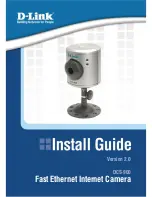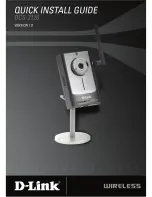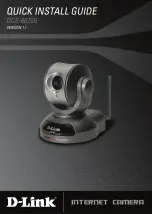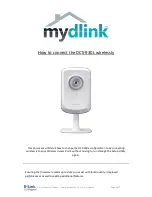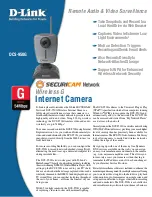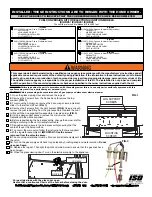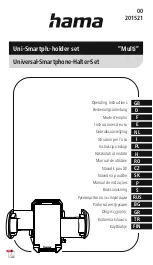
Push reset
button with a
pointed object
Figure 10 - Replacing a fuse
• Remove fuse cover by inserting, on either
side, a flat head screwdriver and twisting.
• Measure continuity. If good continuity,
the fuse is good. Re-install the cover.
• If no continuity, remove and replace
the fuse using a 7 mm socket and
torque wrench with a torque of 3 N.m
(26.5 in.lbs). Re-install the cover.
Figure 9 - Reset button
steady
Emergency alarm
steady
Software trap
steady
Schedule a replacement of the Evolion
®
2.1 kWh module.
Contact your local Saft representative for further details.
steady
The Evolion
®
2.1 kWh can continue to operate normally.
Use the Evolion
®
Toolbox software to view the active alarms.
Troubleshoot the active alarms according to the Evolion
®
2.1 kWh Technical Manual
Appendix E.
Contact your local Saft representative for further assistance.
steady
The Evolion
®
is currently disconnected by its own internal switch.
Disconnect and remove the Evolion
®
from the application to prevent inadvertent
waking up and reconnecting with too much voltage difference
(2 V maximum).
Use the Evolion
®
Toolbox software to view the active alarms.
Troubleshoot the active alarms according to the Evolion
®
2.1 kWh Technical Manual
Appendix E.
Put Evolion
®
2.1 kWh back into service if alarms are successfully cleared. Make sure
to reconnect with less than 2 V difference between modules.
Contact your local Saft representative for further assistance.
Evolion
®
is
OFF
on a live bus
The Evolion
®
2.1 kWh is likely deep discharged.
Disconnect and remove the Evolion
®
2.1 kWh from the application.
Contact your local Saft representative for further assistance.
Saft
Industrial Battery Group
12, rue Sadi Carnot
93170 Bagnolet - France
Tel : +33 (0)1 49 93 19 18
Fax: +33 (0)1 49 93 19 64
www.saftbatteries.com
Doc. Nº 21920-2-0215
Edition: February 2015
Data in this document is subject to change without
notice and becomes contractual only after written
confirmation.
Société par Actions Simplifiée au capital de
31 944 000 €
RCS Bobigny B 383 703 873
Produced in the UK by Arthur Associates Limited
8. Maintenance
The Evolion
®
2.1 kWh requires no
maintenance, but checking its state
and taking necessary action during
periodic site routines is recommended.
The SOC can be checked while in
operation. Refer to Figure 3 and
Table 2.
Check if the heat sink area is
obstructed or accumulated with dirt
and debris. As necessary, un-obstruct
or clean using a non-metallic brush or
a dry or damp cloth. Do not use any
cleaning solvents or soaps. Do not
immerse, dunk, bathe or hose off the
Evolion
®
2.1 kWh.
Check the rectifier output. It should
be set at 56.0 V ± 0.5%.
Check the LED and verify that the
operating status is normal. Refer to
Table 6.
If an abnormal operation (see Table
6) is noticed, see Section 10.
9. Resetting the software
If an alarm that is not automatically
resettable or software trap is
encountered then push the reset
button using a pointed object. After
the unit can be restarted normally.
See Figure 9 below.
IMPORTANT:
Only push the reset
button when the Evolion
®
2.1 kWh is
disconnected from the application.
The Evolion
®
must be ON to reset.
If the Evolion
®
2.1 kWh emits an
unusual smell, feels hot, changes
shape or appears abnormal in any
other way, conduct the following
procedure:
1. Disconnect the Evolion
®
2.1 kWh
from power.
2. Shut-down the Evolion
®
by pushing
the ON/OFF button for at least 4 s.
3. Leave the Evolion
®
2.1 kWh in
place.
4. Call your local Saft representative
for further assistance.
To check and replace the fuse,
conduct the following procedure:
1. Shut-down the Evolion
®
2.1 kWh by
pushing the ON/OFF button for at
least 4 s.
2. Disconnect and un-install the
Evolion
®
2.1 kWh.
3. Check and replace the fuse
according to Figure 10.
4. The Evolion
®
2.1 kWh is now
ready for service.
11. Removal and recycling
Make sure to turn OFF the battery
breaker.
1. Shut-down the Evolion
®
2.1 kWh by
pushing the ON/OFF button for at
least 4 s.
2. Disconnect the power terminals.
3. Disconnect alarm/communication
cables.
4. Remove the Evolion
®
2.1 kWh and
stage for recycling.
5. Call your local Saft representative
for further assistance.
10. Troubleshooting
The Evolion
®
Toolbox software is the
best way to interrogate an Evolion
®
2.1 kWh during troubleshooting.
Refer to the Evolion
®
2.1 kWh
Technical Manual Appendix E for
troubleshooting alarm details.
If an abnormal operation status
is noticed, conduct the following
procedure (Table 8):
Table 8





